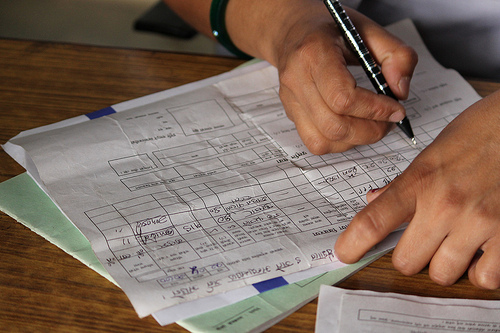What does Shakespeare have to do with Medicine?

By: Amna Jamshad
Premed students have a lot on our plates. When faced with rigorous subjects like organic chemistry, required courses in the humanities may seem inconvenient. How could literature help us diagnose our future patients, learn biological mechanisms, ace the MCAT, develop shadowing experience and speak coherently in interviews?
More than you’d think.
In an article written for the New York Times, Dr. Pauline Chen accounts the new trend that combines literature and medicine, also called narrative medicine. Narrative medicine programs give physicians a wide variety of reading materials ranging from the classics to pieces written by physician authors. Dr. Chen writes, “Such literary training can strengthen and support the compassionate instincts of doctors,” helping them quantify the emotions of the people they serve. Doctors with these compassionate instincts can better connect with patients and their families.
Some medical schools, including Columbia University’s Department of Surgery, have added courses on narrative medicine to their residency programs. Following a similar path, UGA has launched a literature course focused towards premed students. Last fall, UGA moved to supplement hard sciences on the undergraduate level with the new Literature and Medicine course (CMLT 2800), which will also be offered in spring as well.
Taught by Professor Brian Urrutia, the Literature and Medicine course focuses on “the value of humanistic understanding in a field traditionally defined as exclusively scientific.” While medicine acknowledges these fields, literature can give an entirely unprecedented layer to patient care: a human layer. This builds compassionate doctors. Literature and Medicine exemplifies both how to use these empathetic qualities and why they are necessary in the medical field.
To be perfectly honest, I originally selected this class because I needed to fill a humanities credit. I did not have the faintest idea what Literature and Medicine had in common–or that it could be so helpful and interesting. As the semester wore on, Urrutia helped clarify the connections between literature and medicine.
How many students realize the importance of empathy in the patient-physician relationship? Few. How many know why that is? Even fewer. The Literature and Medicine course teaches students how to understand such concepts and provides students an environment to practice discussing medicine and supporting their claims with textual evidence. Developing discussion skills is critical for knocking a medical school interview out of the park.
The amount of reading for the class was manageable. Annette Elakatt, a junior biology and genetics double major, describes the course as “intellectually stimulating.” Like other students, she initially believed the course would solely consist of journal articles but was pleasantly surprised by the variety of literature, which includes works of fiction, poetry and narratives.
The material ranges from early 20th century text to music by Ray Charles. Assigned novels include Leo Tolstoy’s The Death of Ivan Ilyich, Eden Express by Mark Vonnegut, various short stories by Dr. William Carlos Williams and my personal favorite, Cutting for Stone by Abraham Varghese. I have no shame; I cried towards the end of Varghese’s novel. As a comparative literature class that is discussion-based, participation remains key especially since it is a sizable chunk of the final grade, so be prepared with a “thought of the day.”
Urrutia is extremely enthusiastic, which made the topics and discussions enjoyable and entertaining. He is approachable and interested in knowing his students outside the classroom setting. And maybe if you ask nicely, Urrutia will have class outside when the weather is balmy.
CMLT 2800 is a great choice for premed students looking to fulfill credit requirements, learn about the challenges that physicians face and simply how to become a good physician. The course may not help you learn mechanisms, but it does one better; it teaches compassion, empathy and general human understanding that you can practice with other students, future employers, admissions officials and most of all, your future patient.
I highly recommend the Literature and Medicine course for any student who would like to understand medicine through a new perspective in an engaging and enjoyable manner.

